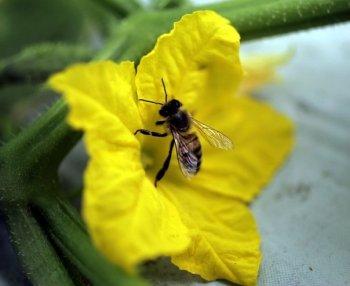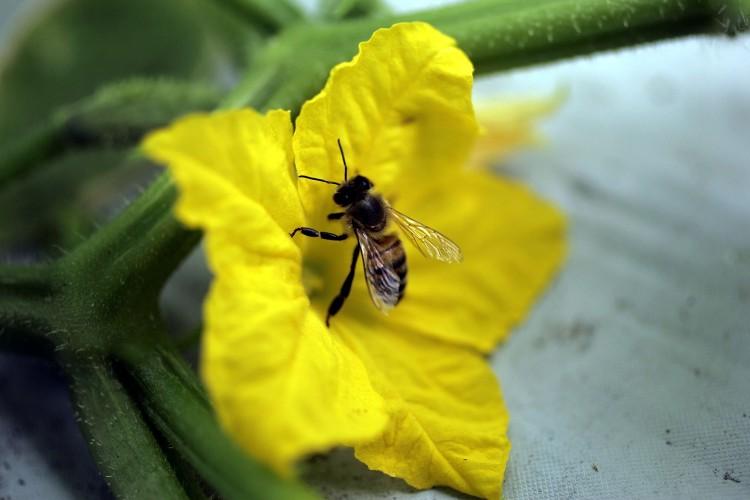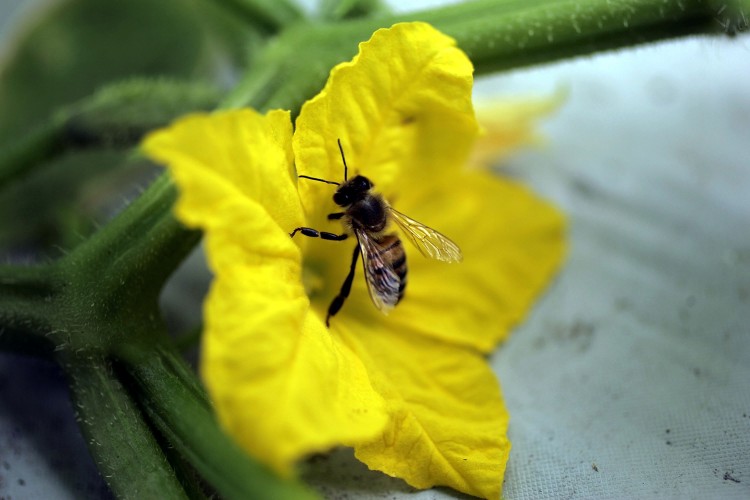University of Illinois at Chicago Polls Pollinators
One of the most important factors for human survival is often the most overlooked—insect pollinators. Bees help to pollinate the fruits and vegetables that we eat everyday. Without bees, human civilization would soon face severe food shortages.

A honey bee is seen on a cucumber plant's flower in Florida. Bees play an important part to pollinate the fruits and vegetables that we eat everyday. A team of Biologists at the University of Illinois at Chicago (UIC) are now doing a study on how urban areas affect the variety and number of insect pollinators. Wolfgang Kumm/Getty Images
|Updated:





